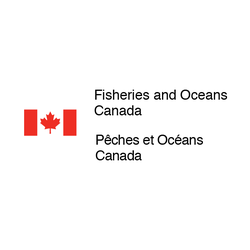
NRC — Refrigerated material test laboratory (Cold test labs) Research Facility
At a glance
- No Condition
- Unspecified
- Utilities
- Manufacturing
- Transportation and warehousing
- Professional, scientific and technical services
- Newfoundland and Labrador
- For-profit business
- All revenue ranges
- All organization sizes
- All groups
Overview
Fee-for-service material testing at cold temperatures, with a variety of equipment for ice preparation, video recording and data acquisition.
Activities funded
The NRC's Refrigerated Material Test Laboratory is suited for projects that require precise material testing at low temperatures for the marine industry. These activities are supported by state-of-the-art equipment and testing facilities, advancing research and innovation in harsh, cold environments.
- Conducting uni-axial compressive and tensile strength tests using force measurement load cells.
- Performing tests with linear variable differential transformers, extensometers, and accelerometers.
- Utilizing triaxial cells for material testing under confining pressure.
- Employing video recording and data acquisition to analyze test results.
- Preparing and handling ice samples using specialized ice preparation equipment such as manual-3 axis milling machines and lathes.
- Testing materials in a variety of conditions using a 1 MN load frame and a 100 kN load frame with adjustable variables.
- Engaging in general laboratory work requiring temperature-controlled environments.
- Facilitating long-term storage of ice and other materials in temperature-maintained conditions.
Eligibility
Eligibility criteria for this grant:
- Applicants must be involved in material testing for the marine industry.
Who is eligible?
This grant targets companies or industries involved in material testing, particularly within the marine industry, and those looking for precise measurement and analysis capabilities at low temperatures.
- Organizations in the marine industry requiring specialized equipment for material testing in low-temperature environments.
- Companies involved in research and development seeking to de-risk and demonstrate innovative technologies.
- Industries looking for support in bridging the gap between innovation and commercialization.
- Entities involved in advanced engineering for complex water environments.
Who is not eligible
There are specific types of companies that are not eligible for this grant.
- Companies outside the marine industry.
- Companies not involved in material testing.
- Companies that do not require low temperature testing.
Eligible expenses
The NRC laboratory provides essential testing capabilities that support industry efforts in the marine sector. The projects and activities that could benefit from these facilities include material testing under low temperatures and using various specialized equipment.
- Material testing for uni-axial compressive and tensile strength in marine industry applications.
- Ice preparation and testing using advanced milling machines, lathes, and ice growth tanks.
- Development of testing protocols using force measurement load cells and extensometers.
- Utilization of triaxial cells for testing material behavior under confining pressures.
Selection criteria
The evaluation and selection criteria for this grant are as follows:
- Technical merit of the proposed research
- Relevance and potential impact on the marine industry
- Innovation and technical feasibility of the project
- Capability of the research team to carry out the proposed work
- Potential for knowledge transfer and commercialization
How to apply
Review the grant eligibility criteria
- Content: Understand the specific requirements and focus areas of the grant.
- Implications: Ensures that the project aligns with the grant's objectives and increases the chances of a successful application.
Prepare the application documents
- Content: Gather all necessary information and documentation for the application, such as project details, budget estimates, and supporting materials.
- Implications: Proper documentation is essential for a complete and well-rounded submission.
Submit the application
- Content: Follow the specified guidelines for submitting the application, including deadlines and required format.
- Implications: Timely and accurate submission is crucial to be considered for the grant.
Additional information
Here are additional relevant details for potential grant applicants working with the NRC laboratory:
- The facility is highly specialized for ice and material testing in marine environments, providing a unique opportunity for applicants needing such services.
- Applicants can leverage the laboratory's comprehensive range of equipment for both testing and data acquisition purposes.
- The NRC's experienced research staff are an asset, bringing extensive expertise in handling advanced engineering projects within marine settings.
- Collaboration with the NRC can aid in bridging the gap between technological innovation and market commercialization, providing de-risking opportunities.
Contacts
Frequently Asked Questions about the NRC — Refrigerated material test laboratory (Cold test labs) Research Facility Program
What is the NRC — Refrigerated material test laboratory (Cold test labs) Research Facility?
Who is eligible for the NRC — Refrigerated material test laboratory (Cold test labs) Research Facility program?
What expenses are eligible under NRC — Refrigerated material test laboratory (Cold test labs) Research Facility?
Who can I contact for more information about the NRC — Refrigerated material test laboratory (Cold test labs) Research Facility?
Where is the NRC — Refrigerated material test laboratory (Cold test labs) Research Facility available?
Is the NRC — Refrigerated material test laboratory (Cold test labs) Research Facility a grant, loan, or tax credit?
Who are the financial supporters of the NRC — Refrigerated material test laboratory (Cold test labs) Research Facility?
More programs like this

NRC — Ice Tank - 90 m Research Facility
National Research Council Canada (NRC)
NRC — Ocean, Coastal and River Engineering Research Centre
National Research Council Canada (NRC)
Newfoundland and Labrador green technology tax credit
Government of Newfoundland and Labrador
Newfoundland and Labrador research and development tax credit
Government of Newfoundland and Labrador
Newfoundland and Labrador — Business Growth Program
Government of Newfoundland and Labrador
Business Development Support Program
Government of Newfoundland and Labrador
Direct Equity Tax Credit
Government of Newfoundland and Labrador
Innovation and Business Development Fund
Government of Newfoundland and Labrador
Atlantic Fisheries Fund — Innovation
Fisheries and Oceans Canada (DFO)